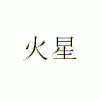Foreign words/names trasnliteration/pronunciation in Chinese - any changes needed?
Foreign words/names transliteration/pronunciation in Chinese
-
1. Foreign words/names transliteration/pronunciation in Chinese
-
Leave it as it is now. I don't want any changes. Please comment.3
-
Need a new script (somewhat like Japanese kana, Korean Hangul). Please comment.1
-
Write foreign names in Roman scripts or provide pronunciation in Roman letters. Please comment.3
-

Recommended Posts
Join the conversation
You can post now and select your username and password later. If you have an account, sign in now to post with your account.
Note: Your post will require moderator approval before it will be visible.